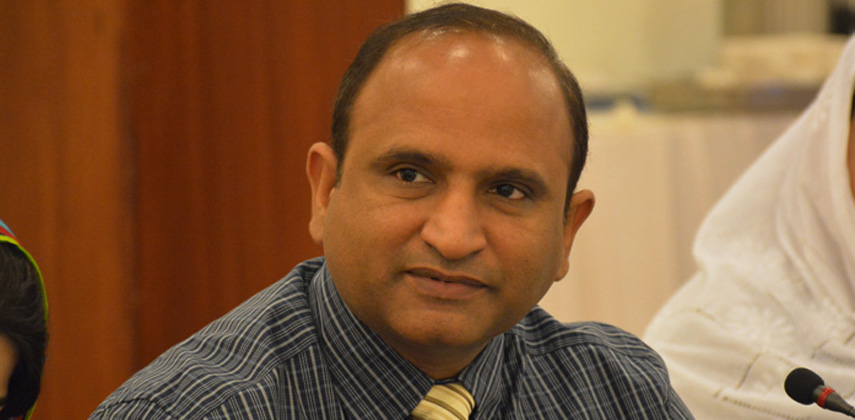Education and Educator; Prototypes of Human Rights Education in Pakistan
Majority of the people in Pakistan are unaware of their fundamental rights, due to which they fall prey to agents of the state. These impostors continue to extort them through various ways such as; unequal dissemination of food, low quality of education, substandard sanitary and housing conditions and unhygienic health services. Human rights violation does not stop here but go beyond human endurance. The violators usurp minority rights, women rights, children rights (Child Labor), legal and procedural rights. This surge of fundamental rights violation, enforces masses to take law in their own hands by agitating against social norms and values. These reactionaries resort to sexual abuse, honor killing, murder of minorities, acid burning, domestic violence, kidnapping, rapes and cases of missing persons/children, police brutalities, target killings, sexual harassments, child abuse, and violence against women is in vogue.
Situation of human rights in Pakistan is deplorable at present due to suppression, class differences and unemployment. The obvious reason being that masses in Pakistan are unaware of their citizenry rights. Even graduates of universities are taking rule of law in their hands by showing intolerance towards atrocities and inequities in social system. The solution of these inequalities prevailing in our system seems depressing. The only way out in this regard is quality education that is the only solution to these inappropriate norms. Modern world is establishing such educational standards that can cope with the inequalities and social injustice where an individual is privileged to have equal human rights. The rights that are equal for all citizens and no consideration is given to cast, creed, color, race or religion. The supremacy is given to only and only being human; not the other earthly privileges. Modern age is an age of human rights where all the citizens are equal and important to the state. As a Muslim we should recall the last sermon of the Holy Prophet Muhammad Peace be upon him, which is the first ever herald of the human rights; and use it as a beacon of light in our social life.
Unfortunately, a massive difference existed between societies established in Makkah Mukarma and that in Pakistan. At that time communal autonomy, women empowerment via gender equality, equal opportunities of bourgeoning in trade, employment, education, politics, leadership and decision making were based on equity, piety and parity. No one was above the law and even before the law. The rule of law was equal for Muslima as well as for the heathens, pagans and Bedouins of entire peninsula. On the other hand, present Pakistani society is enveloped in gender discrimination, injustice, religious and sectarian intolerance and clash of rites and rituals. If we wish to see our country free from such evils then we will have to say “No” to human rights violation and this can only be done if we will think as a united nation where; literacy rate is hundred percent and quality education is the sole yardstick of the minds and bodies.
Education may act as an obvious vehicle for the dissemination of rights and work as a projector of fluctuating defiance if it will incorporate substantive element into its soul. A new vision of quality education is essential for the attainment of equity and to stop human rights violation. There is a dire need to change conventional definition of quality education that is reading, writing and arithmetic and surmounting new challenges such as relevance, universal values, peace and security and informed decision-making. In this context, quality education has to be based upon a human right approach, but it should not be limited to cultural diversity, multilingualism in education, peace and non-violence, sustainable development and life skills. (UNESCO: Human Rights Education)
Human rights education should be knitted around some major aims that should include:
- Fostering the attitude of tolerance, respect and solidarity
- Providing knowledge about human rights in national and international dimension.
- Developing the individual’s awareness of the ways and means by which human rights can be translated into social and political reality.
- The education system came to be regarded as a key in creating a sense of solidarity on the basis of religion among the ethnically and culturally diverse population of the state.
- Single approach should be adopted to ensure that students are made familiar with the fundamental rights that are given in the Constitution as well as by dint of multilateral agreements to which the government of Pakistan has become a signatory.
- A course may be introduced regarding “Citizenship” at higher level.
The teachers are the preachers of human rights in a society. They are the persons who are responsible for the individual and social development of the learners and an institution is one of the major rendezvous where pebbles of intellect dwell and shape their thoughts, ideas and attitudes. The education in Pakistan on all levels and grades may promulgate values of peace, solidarity, brotherhood and human rights. The aim of education should be to steer itself from monotonous slogans of employment security and take it up to a standard where it should act as a skill acquirer, personality developer and contributor to the development of society. If we all consider these rules of education, then an alarming situation can be stopped and humanity can survive. Incorporation of human rights in our courses can sow seeds of tolerance, peace, equity and bonds of understanding among learners and the teachers are the real harvester of this crop.
M.Asif Nadeem (PhD)

